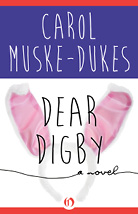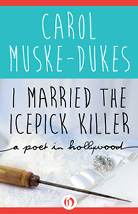Dear Digby (24 page)
Authors: Carol Muske-Dukes

We drank our coffee in silence for a bit. “Yes,” she said emphatically. “Eighty-
three
. I was just remembering 1917—the year this letter was sent to me. It’s from my older sister Lillian,” she said, and showed me the spidery handwriting on the envelope. “She was very strong in the Movement, you know, Lillian. She was twenty-two, and I was only fourteen, awkward and gangly. I had two other sisters, but she was the passionate, smart one
and
the beauty, too! That was a
violent
time, when they chained themselves to the White House gates and to the wheels of important men’s carriages. The marches here in New York got rough. Dear Lord, I remember coming home from school once and finding her standing at the window in the parlor, her long brown hair shining down her back. Then she turned around. Someone had flung mud all over her, from head to toe, her white dress and her ‘Votes for Women’ shoulder banner were
covered
with dark smears. She had been crying, I could tell. She came up to me, and I remember being a little afraid of her. ‘Dressy,’ she cried, and took me by the shoulders. ‘Look at me. They threw handfuls of sludge at us—men, women, even
children.
They’re so
afraid.’
Take a forkful of
pie,
Willis,” she suggested. I shook my head.
“Later she went down to Washington and was there when they arrested Alice Paul on the White House steps, took her to jail and sentenced her to seven months—which is when she began her hunger strike. That’s what this letter starts with, the arrest of Alice Paul. She wrote it to me from
Washington.”
She pointed to the pie again, and again I demurred.
She opened the old letter and began to read aloud:
“Dear Dressy,
“Well, here we are, back at Mrs. Kramer’s after the most extraordinary day of my life! We are having hot cups of soup and coffee, drying our clothes—and I thought I would write to you, dear little sister.
“You’ve expressed interest in history and in this great Cause—I charge you now to remember this day—the day they took Alice Paul to prison from the White House steps! Our shamed president said nothing. The crowd screamed, ‘Traitors!’ and ‘Turncoats!’ the way they have all through the War, and they threw stones at us.
“Well, dear, we tried to sing our songs and keep our spirits up, but then a large fat man in the crowd threw a stone and hit Theresa in the neck. She fell, but recovered herself. ‘Where are your husbands?’ the fat man shouted. ‘Where is your wife—she needs
us
!’ we called back. ‘Madam! No wife of mine would march in a monkey line!’ he cried out. Oh, Dressy, you should have heard them then—the other men started jeering, ‘Monkey line! Monkey line!’ and ‘Get back to your kitchens and your mending! Get back to your neglected children—or are you all barren? Spinsters!’ they cried. ‘Hags!’—the worst epithets men think to call the fair sex. One man left a rearing horse he’d been beating in the street and snapped his bloody whip smartly in the air, yelling, ‘
This
tongue would talk sense into them!’ And the others cheered—I recall particularly the faces of the policemen, for whom this provided great merriment. They pushed the crowd back halfheartedly and laughed heartily at our expense.“Then the horsewhip man called out, ‘And
what
would you creatures make of the right to cast ballot?’ And Miss Turner, who reads law and history, cried, ‘Our cause grew from the abolitionist—would you have woman
stay
slaves and go without representation in a democratic land?’ And the cursed man—Dressy, I hope not to injure you with this, but he looked right and left, then shouted, ‘Niggers and slatterns, slatterns and niggers—you say? Well, that is a monkey line—if
I
do say!’ He turned to his comrades, who all held their sides with laughter.“And then Constance Dalton, of our company, who is a mulatto, came forward and stood front of the line, to face this man. ‘Sir?’ the brave woman called out. ‘Are you suggesting that I should be ashamed of my skin—and my sex? Come forward,’ she said, ‘and say what it is you mean to my
face.’“There was a low rumbling that started deep in the crowd, and when I heard it, Dressy, I was very frightened. I saw the man move toward her with his whip, and I felt her flinch. And suddenly I felt
lifted up,
free in such a manner I cannot explain. I made a face, I made a
monkey face
at the unfortunate men, since they’d called us a
monkey line
—then all the women began making faces, sticking out their tongues, cawing and shrieking, putting their thumbs in their ears and waggling their fingers. A fine display!“The men fell back. They were frightened, as if they’d suspected this to be the way women had always
wished
to behave—like wild creatures. Their expressions were horrified, as if they expected us to tear off our corsets and swing from the trees! Oh, Dressy, we might
have!”
“Willis, have a piece of that pie!” she commanded, interrupting herself. “It’s got a flavor you won’t believe! Willis, you want to know why men fear women? My sister says it later in this letter,” she said, folding the pages into the envelope. “Because we’re
anarchists,
deep inside, anarchists to a woman! Anarchists for
love. EAT THAT PIE!”
she bellowed.
I jumped to, digging in with the plastic fork. She watched me carefully. “Elizabeth Cady Stanton took a scissors and cut a law from the books of her father, the judge, because it said men could sell property out from under women and she’d heard a poor woman weeping over it in his chambers. She was only ten when she did it. Anarchists!” She stuffed a big piece of pie in her mouth and spit a little out as she talked. “Those women could have taught W.I.T.C.H. some tricks!”
I put on my rabbit ears; I just felt a need to suddenly.
“You know, Willis,” she said, leaning forward a little, whistling through her teeth and spitting pie crumbs, “I’ve never liked that damn contraption you wear on your head. It makes you look
goonish.”
“Dresden,” I said, and took the letter out of her old thin hand and kissed it, then pinned it up next to Iris’s wallet snapshot, “I can’t
stand
your pies.” I took the fork and stabbed the loathsome confection. “They’re
vile.”
The phone rang. I picked it up and said, “I’m an Anarchist for Love, and I’m on my way to lunch. Talk fast!”
Mr. Dorchek, the Assistant D.A., said, “Is this fast enough? Our good jury of peers came back with a winning vote for us. They took ’em down on eleven counts! Not bad.”
I hugged Dresden, then I picked up Iris’s Hot Line to the Supreme, Somewhat Preoccupied Intelligence, and said, “I
believe,”
and hung up.
Dresden was waiting patiently to finish our conversation. She looked down at her bilious creation. “You’re right,” she said. “My pies
suck.
But look at all the friends I’ve made, Willis, because of them!
Think
about it.”
Then we went out together for a couple of beers, Dresden and I—we left the pie on Holly’s desk, and I, not being one to backtrack in a snowstorm, left the rabbit ears behind me.
I wish to thank the following individuals for their generous assistance and editorial and/or moral support: Lois Sortedahl, Dawn Seferian, Nan Graham, Laurie Frank, John Irving, Leo Braudy, Dorothy Braudy, Lynne McMahon, Cathy Bos, Andrew Fishmann, M.D., M. E. Loree Fishmann, Lee Shallat, Michael Ryan, Mimi Kennedy, Stuart Dawrs, Wendi Robbins, Martha Millard.
I especially want to thank David Dukes, for love, support, patience—and for driving me to Todi.
Carol Muske-Dukes is the author of eight books of poems, four novels, and two essay collections, and is an editor of two anthologies, including
Crossing State Lines: An American Renga
, which she coedited with Bob Holman. Many of her books have been New York Times Notable selections. Muske-Dukes is a professor of English and creative writing at the University of Southern California, where she founded the PhD program in creative writing and literature, and she recently fulfilled her appointment as poet laureate of California, appointed by the governor’s office. Her poetry collection
Sparrow
was a National Book Award finalist and she is a six-time Pushcart Prize winner. She writes for the
New York Times Book Review
and the
New York Times
op-ed page, the
Los Angeles Times
, the Huffington Post, and the
New Yorker
’s
Page-Turner
blog. Her poems have been published and anthologized widely, including in several editions of
Best American Poetry
. Muske-Dukes has been the recipient of a Guggenheim Fellowship, a National Endowment for the Arts grant, a Library of Congress award, Barnes & Noble’s Writer for Writers Award, and many other honors. She lives in Southern California and New York.
All rights reserved, including without limitation the right to reproduce this ebook or any portion thereof in any form or by any means, whether electronic or mechanical, now known or hereinafter invented, without the express written permission of the publisher.
This is a work of fiction. Names, characters, places, events, and incidents either are the product of the author’s imagination or are used fictitiously. Any resemblance to actual persons, living or dead, businesses, companies, events, or locales is entirely coincidental.
Grateful acknowledgement is made for permission to reprint an excerpt from “A Boy Like That” by Leonard Bernstein and Stephen Sondheim. © 1957 Leonard Bernstein and Stephen Sondheim (renewed). All rights controlled by Chappell & Co. and Amberson Enterprises. All rights reserved. Used by permission.
Copyright © 1989 by Carol Muske-Dukes
Cover design by Neal Alexander Heacox
978-1-4804-8480-1
This edition published in 2014 by Open Road Integrated Media, Inc.
345 Hudson Street
New York, NY 10014








